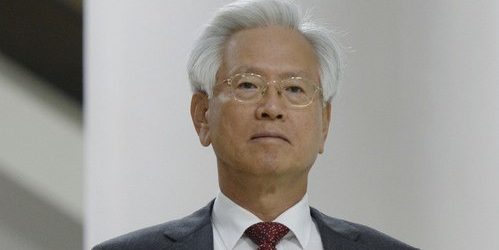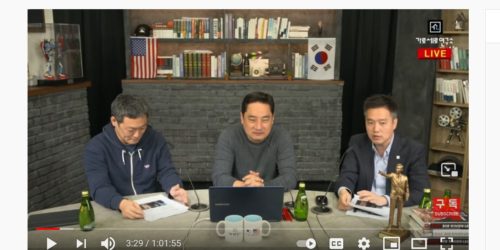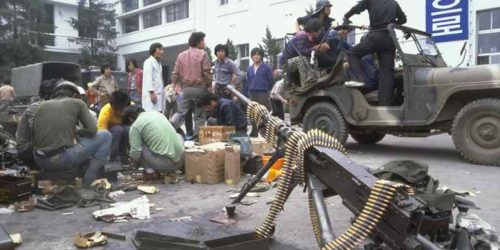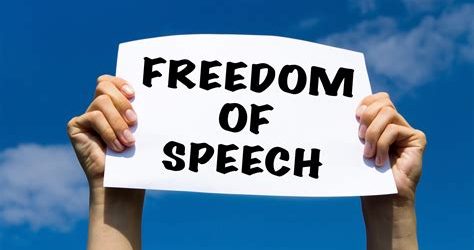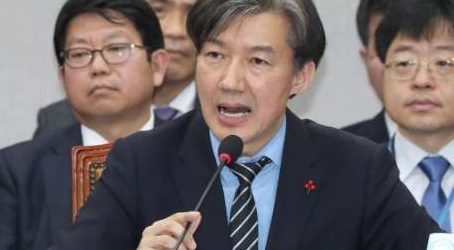North Korea’s Terminology Deception Tactics: The Word “Democracy” as Explained by Former Public Security Prosecutor Koh Young-ju
2020-7-8, Tara O
North Korea and those in South Korea pursuing socialism/communism have been using “Terminology Deception Tactics” (1) (용어 혼란 전술), part of Psychological Operations, to create confusion and elicit support and cooperation from the unsuspecting public. Long used by communists in their revolutionary efforts, Terminology Deception Tactics is part of Propaganda and Agitation Tactics designed to influence the public. (2) In North Korea’s political dictionary published in 1985, propaganda and agitation is the method to “arm the working class with revolutionary ideology and theory, the Workers’ Party of Korea (WPK) line and policy, and to organize and mobilize, which are the foundation of party ideology operations.” (3) Propaganda and agitation is so important to North Korea, that it is central to the WPK’s key organizations, such as the Propaganda and Agitation Department (focuses propaganda efforts internally) (4) and the United Front Department (propaganda efforts focused externally). The words used in Terminology Deception Tactics, such as “democracy,” “peace,” and “equality,” usually have positive connotations, but when the North Korean regime and pro-North Korea elements in South Korea use them as part of Terminology Deception Tactics, they have very different meanings. This will focus on the word “democracy.”
In his final statement submitted to the court on June 2, 2020, Koh Young-ju, former public security prosecutor who handled espionage and communist subversion cases over his 28-year career, explains North Korea’s Terminology Deception Tactics involving the word “democracy.” The statement was submitted in the libel case, in which South Korean president Moon Jae-in sued Mr. Koh Young-ju, because Koh referred to Moon as a communist. Koh said that if Moon becomes president, then it is only a matter of time before South Korea becomes a communist country. Koh said that he acted as a whistle blower, because he felt that “if I do not speak out, then others will not know, and the country could be endangered.” The prosecutor requested a 1 ½ year jail sentence for Koh, and his sentencing is July 9, 2020. The below contains a portion of Koh’s final statement explaining how the word “democracy,” through Terminology Deception Tactics, has been misused to confuse and to elicit public support.
Note: The term “proletariat democracy” mentioned below is “inmin minju-juui” (인민민주주의); “inmin” (인민) has often been translated as “people” in English, but more precisely, it is a Marxist term “proletarians” or “proletariat.” Thus the more precise translation of Democratic People’s Republic of Korea (DPRK), which is the official name for North Korea, is Democratic Proletariat’s Republic of Korea. Here, “proletariat democracy” and the more-familiar “people’s democracy” may be interchanged, but they both mean “proletariat” or “inmin.”
A portion of the Final Statement:
First, I think Judge Choi Han-don (최한돈) and the judges of the 9th Criminal Department for taking such a politically sensitive case, since the complainant [Moon Jae-in] is the current president.
…I’ll provide just one example of how unreasonable the continuation of public prosecution is. Additionally, I’ll reveal that the ‘progressive democracy’ that the complainant is aiming for and the ‘democracy’ minus freedom in the constitutional amendment proposed [by the ruling Democratic Party of Korea] in early 2018 are all North Korean-style proletariat democracy [인민민주주의], i.e., a modified form of communism. By doing so, I’ll attempt to reveal how the complainant is obsessed with the insistence on North Korea’s regime or system, i.e., immersed in North Korean-style communism.
First, I will tell you about the unreasonable prosecution. As the prosecution took sides with the complainant and focused only on punishing the innocent accused, it even started insisting that the Unified Progressive Party (UPP) is not an unconstitutional party. In other words, in order to reveal that the complainant is a communist, I, as accused, pointed out ‘the fact of complainant protecting the United Progressive Party.’ In order to impeach this basis, the prosecution asserted “The UPP, as a coalition of various progressive forces, did not externally deny the constitutional system or sympathize with communism…[Such assertions] are in contempt of the Constitutional Court, which decided to dissolve the UPP because ‘the UPP pursued a North Korean-style socialist system.’
2) Next, let’s take a look at how the ‘progressive democracy’ pursued by the complainant or the ‘democracy without freedom’ suggested in the constitutional amendment of the complainant’s regime are related to the North Korean people’s democratic system.
After the liberation from Japan on August 15, 1945, the Korean Peninsula was divided into north and south according to ideology. The “Republic of Korea” in the south adopted a free (liberal) democracy politically and a capitalist system economically, and the so-called ‘Democratic People’s Republic of Korea’ in the north adopted a communist system both politically and economically. Since then, the communist groups in North Korea and the domestic left-wing and pro-North Korean forces have consistently condemned and criticized the Republic of Korea’s system in the name of national unification.
The term ‘capitalism’ was easy for the communists to attack, because it had a ‘capital-centered’ and ‘disregard human beings’ connotation, but the term ‘democracy’ means ‘the citizens are the masters,’ and has a good nuance. For this reason, it was difficult to attack the word ‘democracy’ with the word ‘communism’ or to win the citizens’ support.
So the trick they came up with is to claim ‘even communism is a kind of democracy.’ In other words, ‘Communism is proletariat democracy, where the proletariat are the masters, so communism is also a kind of democracy.’
On the other hand, regarding liberal democracy, [the communists say] ‘It doesn’t make sense that all the citizens are the masters. If there are masters, then there are slaves, if there are rulers, then there are the ruled, so in reality, it is a minority of bourgeois’s dictatorship over the majority of the proletariat.’ Therefore, it indoctrinated the young students by saying that it is more democratic for the proletariat majority’s dictatorship over the bourgeois minority than for a bourgeois minority to have dictatorship over the proletariat majority.’
Since the South Korean citizens, who went through the Korean War, rebuffed the communist terminology, and [the communists and the pro-North Korea factions, who] insisted on communism, violated the National Security Law, they began using ‘Terminology Deception Tactics.’
In other words, they began using ‘Communism=Proletariat Democracy,’ and the term ‘proletariat’ is replaced with ‘minjoong’ [people, more precisely the masses] to use the term ‘minjoong democracy’ (‘mass democracy,’ 민중민주주의).” The term ‘minjoong democracy’ is North Korea’s ‘proletariat democracy,’ but replacing ‘proletariat’ with ‘minjoong.’ It was revealed that ‘minjoong democracy’ was a communist ideology like ‘proletariat democracy,’ but using a converted term; therefore, a new terminology ‘progressive democracy’ began to be used, instead of ‘proletariat democracy’ or ‘minjoong democracy.’
‘Progressive democracy’ is not a term coined by South Korean leftists, but it is a term that North Korea’s Kim Il-sung used to romanticize proletarian democracy, and South Korean leftists adopted the terminology. At the Constitutional Court on December 19, 2014, when the United Progressive Party (UPP) was dissolved as a party that violates the constitution, it became clear that ‘progressive democracy’ was an “ideology following the North Korean socialist system.”
[As it became clear what ‘progressive democracy’ meant,] they just started using the term ‘democracy,’ like in the constitutional amendment draft proposed in early 2018 [which deleted ‘free’ (or ‘liberal’) in front of ‘democracy’]. Of course, these tricks were not invented by the left-wing forces in the country, but in accordance with North Korea’s guidance.
In North Korea in September 2010, the Workers’ Party Convention,’ (노동당 규약), which is a level higher than the North Korean Constitution, was revised. It removed “proletariat” from the ‘National Liberation Proletariat Democratic Revolution’ (민족해방인민민주주의 혁명), a term for a strategy to communize South Korea through revolution, and renamed it ‘National Liberation Democratic Revolution’ (민족해방민주주의 혁명).
North Korea replacing the term ‘proletariat democracy’ with ‘democracy’ is based on its insistence that ‘free democracy’ is a fake democracy and proletariat democracy (proletariat democracy = communism) is real democracy, so it wants to simply write ‘democracy,’ with the intention of it being referred to as ‘proletariat democracy.’
As described, communism began with “I am also a democracy,” and now it has come to the point of “I am the real democracy.”
In the end, it can be seen that the intention of the complainant’s regime’s efforts to amend the constitution in early 2018 was to change the Republic of Korea’s system from the current liberal democracy to a proletariat democracy or communist system. Until now, our citizens believed that ‘democracy’ naturally means ‘free democracy’ (or ‘liberal democracy’). However, the leftists have tenaciously made efforts for a long time, and now ‘democracy’ means ‘proletariat democracy.’
Despite the circumstances, the Public Safety Prosecutors, which have a mission to prevent the communization of South Korea, care only about how the president, who is the complainant, views them, and are eager to punish their senior (former) public security prosecutor, who warned of threats to the nation. By all means, I look forward to the wise decision by the judges.
Conclusion
It is important to recognize the use of Terminology Deception Tactics, as commonly understood words, when used by North Korea and the pro-North Korea elements in South Korea, do not mean what South Koreans think they mean. In this instance, the word “democracy,” which is often used by pro-North Korea elements in South Korea, does not mean liberal democracy, which emphasizes freedom and the rule of law, but the opposite, i.e., taking away individual freedom and moving toward a communist/socialist system.
References that are not hyperlinked:
- Also referred to as Terminology Confusion Tactics. In Korean, 용어 혼란 전술 or 용어 혼동 전술.
- Yoo Dong-ryul and Kahng Gyoo-hyoung, 2016, “Correct Words Make Correct Policy: Politics, Ideology, History.” In Terminology Warfare, edited by Hyun Jin-kwon, 185. Seoul: Book and People.
- Ibid.
- Robert Collins, North Korea’s Organization and Guidance Department: The Control Tower of Human Rights Denial, 2019, Washington, DC: Committee on Human Rights in North Korea, 77.
